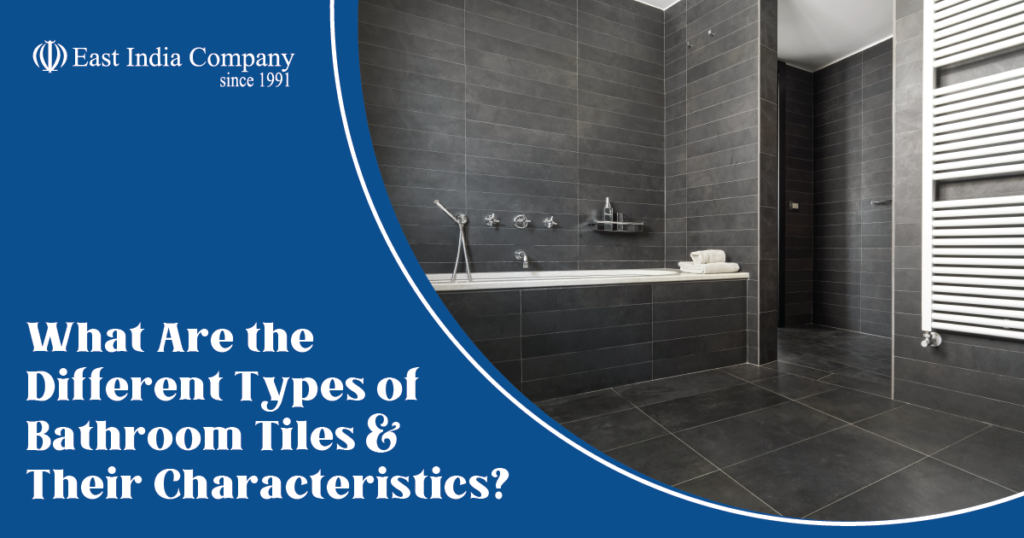Introduction
When it comes time to redo your bathroom or design a new one, one of the big choices you’ll need to make is what kind of floor and wall tiles to go with. Tiles are an important part of any bathroom since they have to look nice but also hold up to all the moisture, soap scum, and traffic the room gets on a daily basis.
With so many tile options out there nowadays, figuring out which material is best for you can feel overwhelming. In this guide, we’ll break down 16 popular types of bathroom tiles. For each one, we’ll give you a quick breakdown of their key features, pros, and cons to help you pick the perfect tiles for your bathroom.
| Checklist for the right bathroom tiles ✔️Durable ✔️Water resistant ✔️Easy to clean |
16 different types of bathroom tiles
Here are the 16 different types of bathroom tiles to consider for your next renovation project.
1.Ceramic tiles
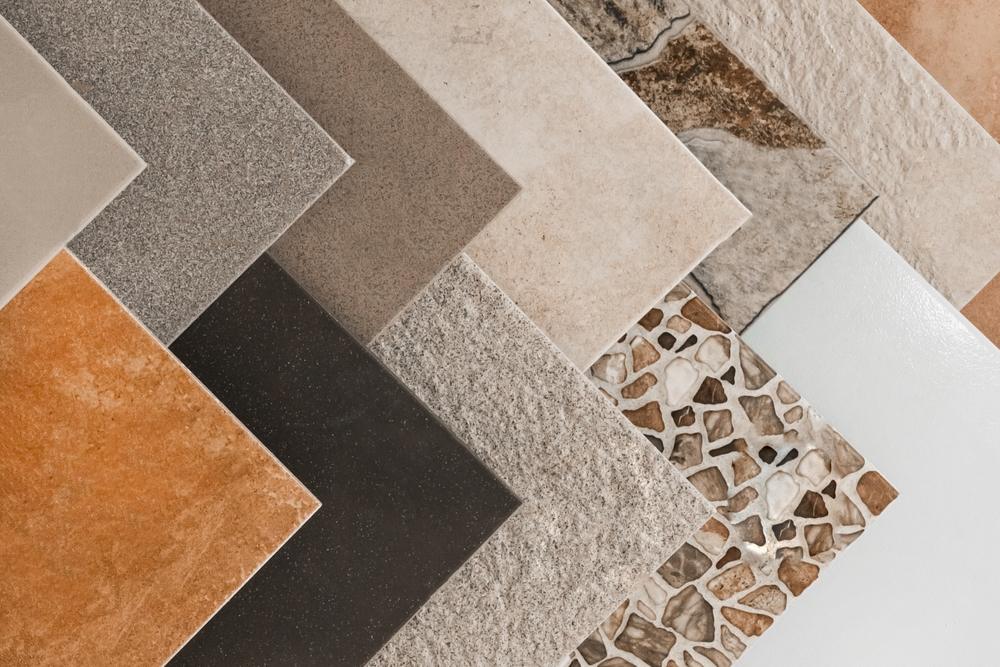
Ceramic tiles are made from clay and other natural materials. They are available in various colours, shapes, sizes, textures and finishes. They are durable, water-resistant and easy to clean. They are stain-resistant when properly sealed. Ceramic tiles are also an economical option.
| Pros | Cons |
|---|---|
|
|
2. Terracotta tiles
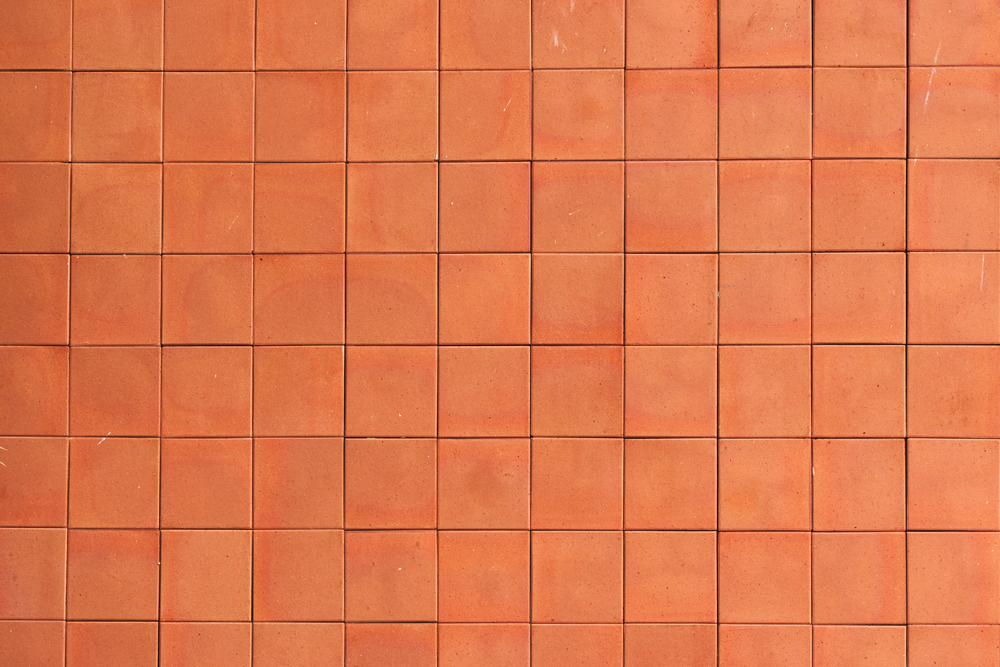
Terracotta tiles are made from natural clay. They have an earthy reddish-orange colour and a textured surface with visible pores. Terracotta tiles come in matte or glossy glazed finishes. Glazed tiles are suitable for bathrooms.
| Pros | Cons |
|---|---|
|
|
3.Porcelain tiles
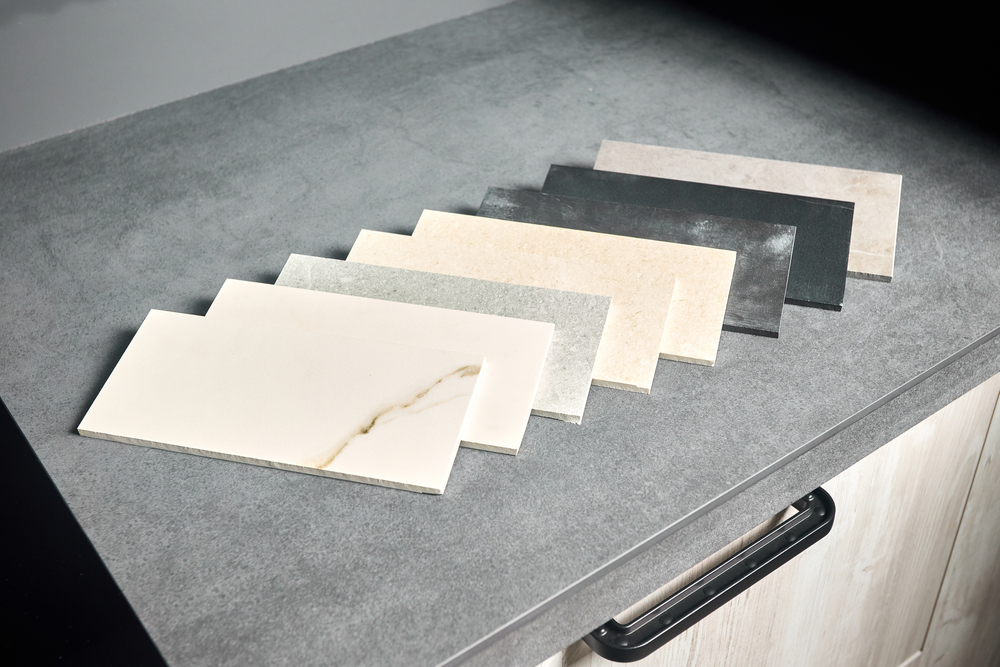
Porcelain tiles are made from refined clay, feldspar, and quartz. They are denser and less porous than ceramic tiles. Porcelain tiles are available in myriad colours, shapes, and textures and can have a matte, polished or textured finish. Porcelain tiles can mimic the look of natural stone.
| Pros | Cons |
|---|---|
|
|
4. Limestone tiles
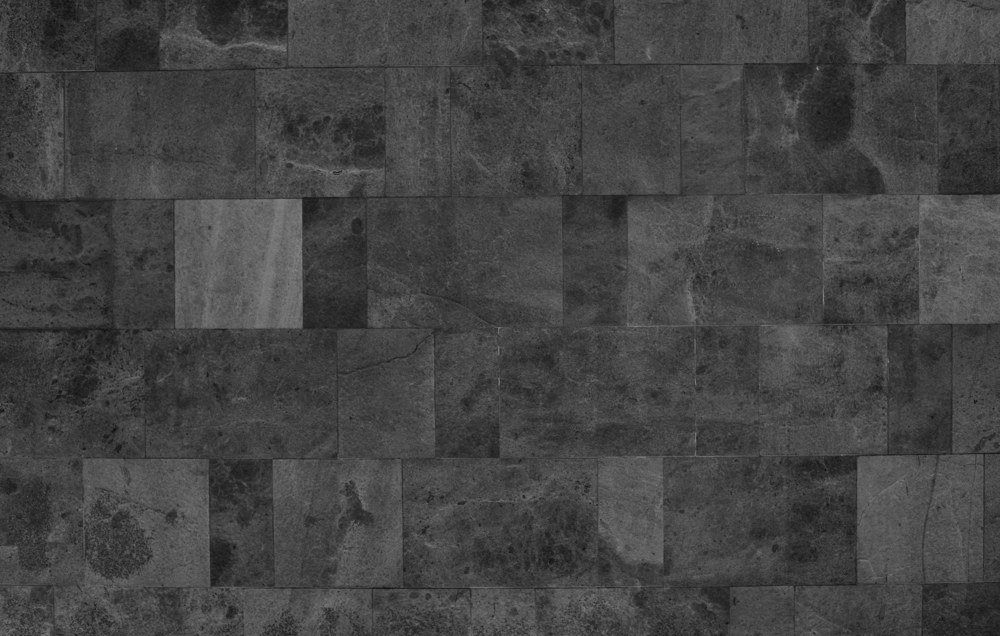
Limestone tiles are made from natural sedimentary rock. They have a light cream or beige colouration with subtle grainy fossilised patterns. Limestone tiles come in matte, honed or textured finishes.
| Pros | Cons |
|---|---|
|
|
Did you know?
Ceramic tiles were first made in China around 20,000 BC!
5. Mosaic tiles
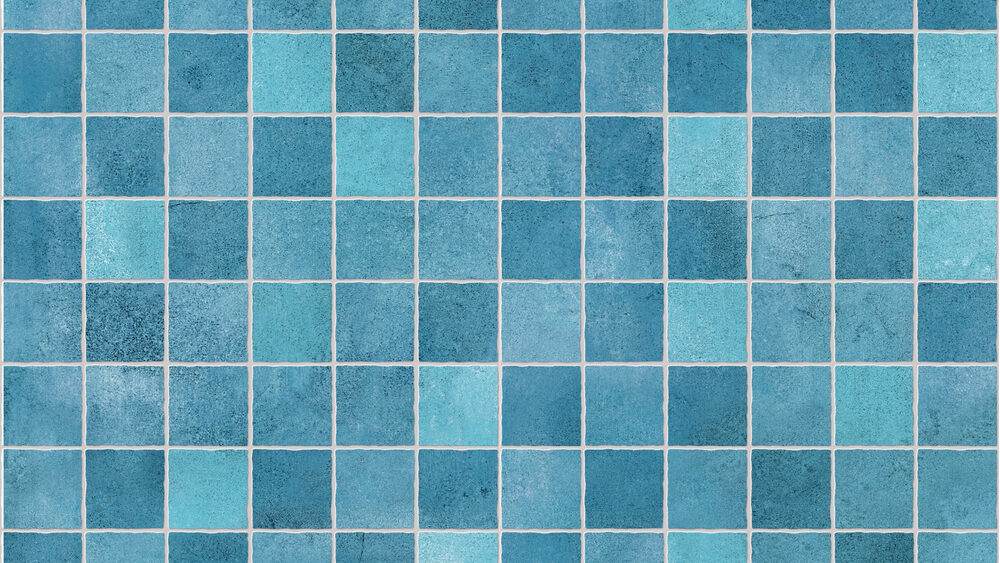
Mosaic tiles are made of small pieces of glass, stone or ceramic mounted on mesh sheets for easy installation. Mosaic tiles combine to form pictures or patterns and come in various colours, shapes and materials.
| Pros | Cons |
|---|---|
|
|
6.Marble tiles
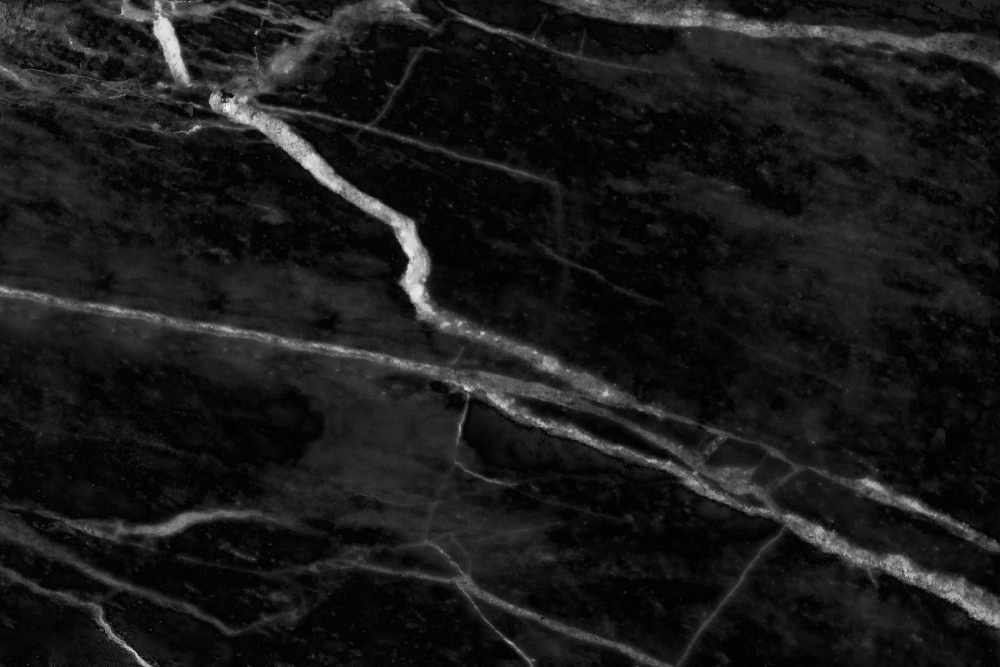
Marble tiles are made from metamorphic limestone rock. They have an elegant appearance with veining and swirls. Marble tiles are polished smooth or have a tumbled matte finish. They come in stunning white, grey or black colours.
| Pros | Cons |
|---|---|
|
|
7. Glass tiles
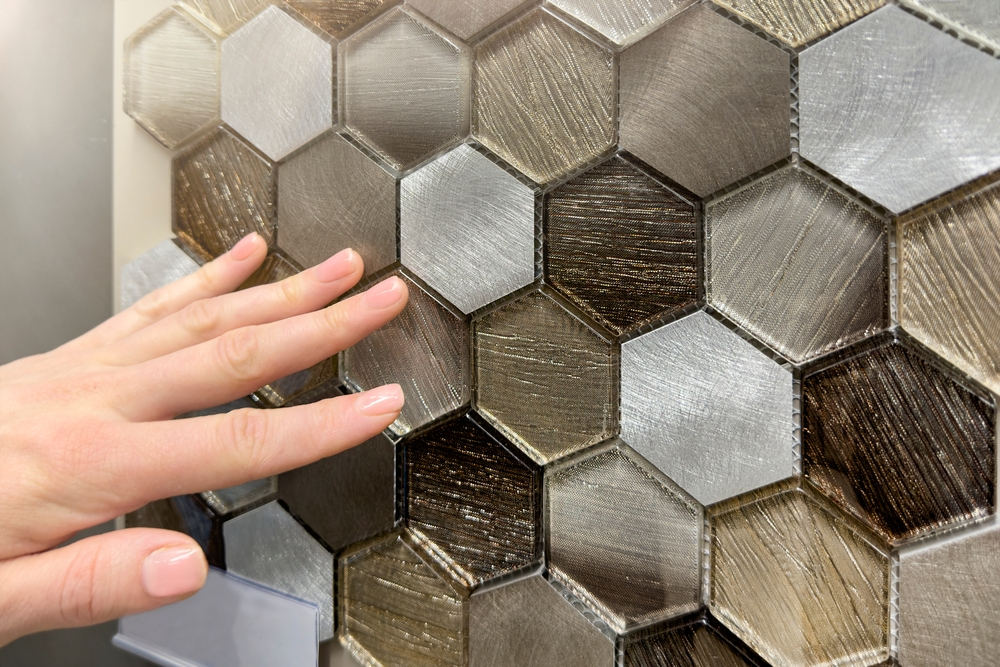
Glass tiles are made from recycled glass. They are available in many colours and can have a glossy, matte or textured finish. Glass tiles range from translucent to opaque.
| Pros | Cons |
|---|---|
|
|
8. Slate tiles
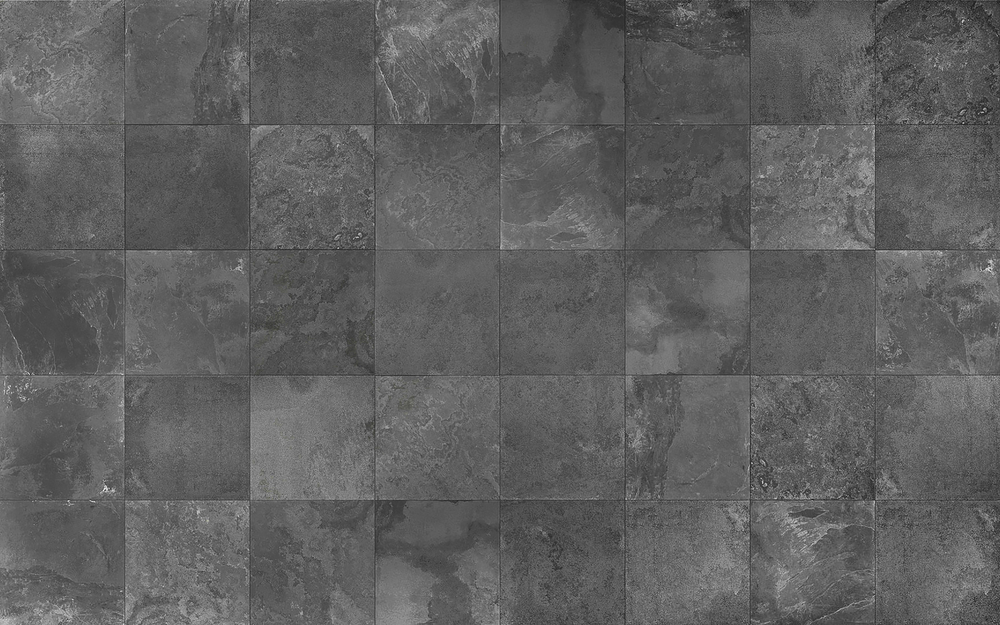
Slate tiles are made from metamorphic rock that has layered foliation. Slate tiles come in shades of black, grey, purple or green. They have natural cleft and textural variations. Slate tiles are finished honed smooth or with a texture.
| Pros | Cons |
|---|---|
|
|
Did you know?
Ancient Egyptians used tiles in the Pyramids!
9. Quarry tiles
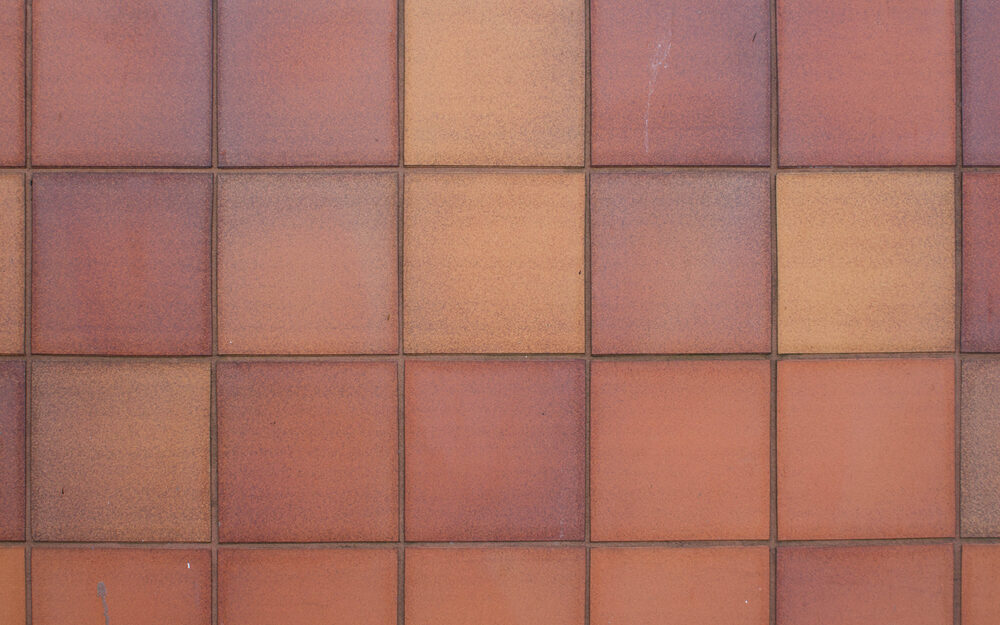
Quarry tiles can be made from natural stone or clay. Their colours are derived from mineral compounds. Quarry tiles have a glazed or unglazed matte finish. They come in square, rectangular or hexagonal shapes.
| Pros | Cons |
|---|---|
|
|
10. Zellige tiles
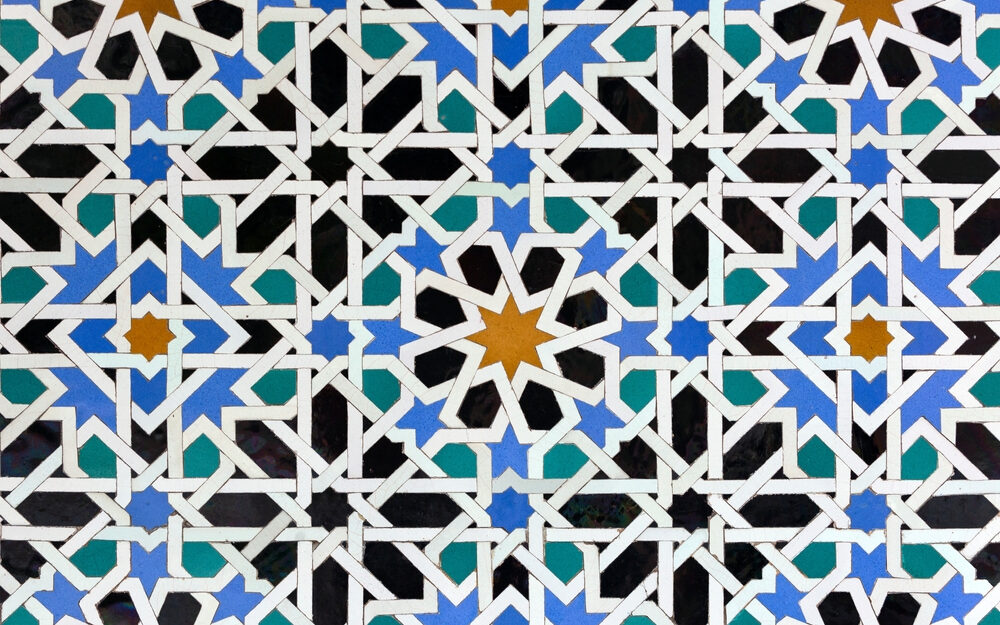
Zellige tiles are handmade terracotta clay tiles that feature geometric mosaic patterns. They are available in multicoloured or single-hue options with distressed, crazed glazing.
| Pros | Cons |
|---|---|
|
|
11. Travertine tiles
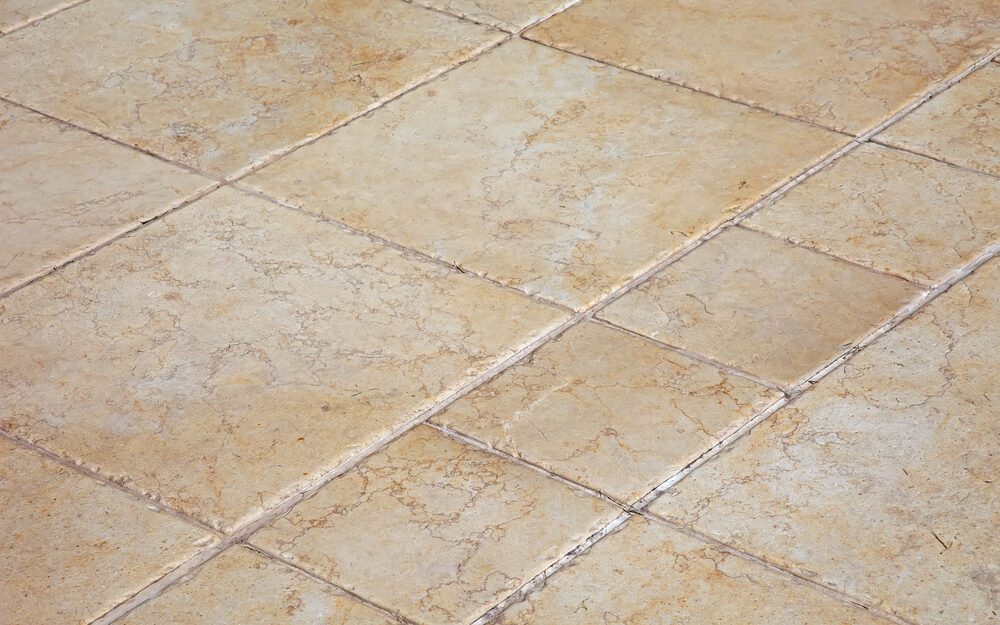
Travertine tiles are made from porous limestone that is formed near mineral springs. They have beige, brown or rust colours with pits and holes. Travertine tiles can have a matte, honed or polished finish and can be filled or unfilled.
| Pros | Cons |
|---|---|
|
|
12. Reformed stone tiles
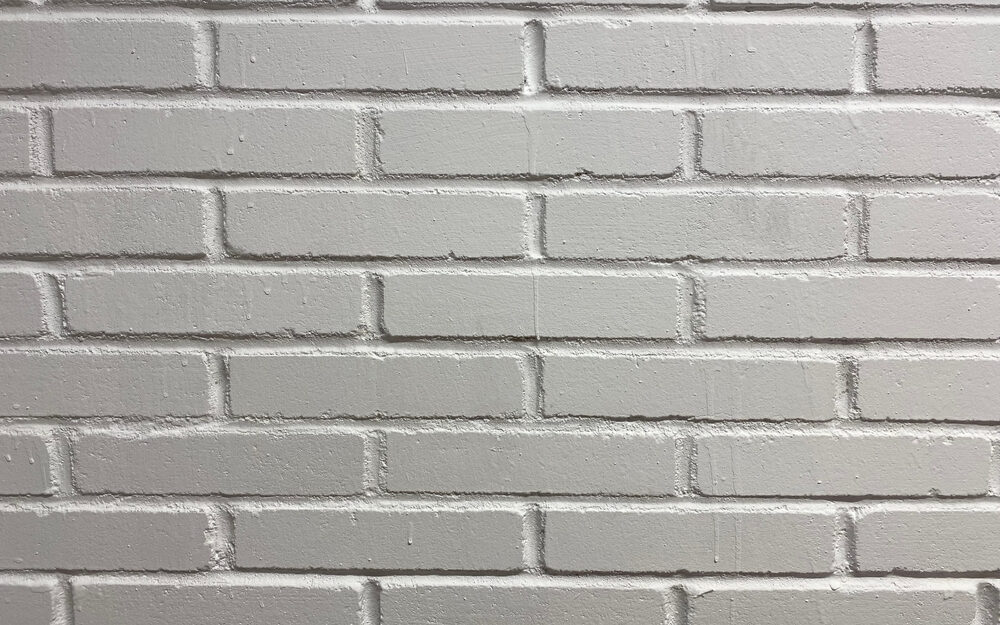
Reconstituted stone tiles are made by crushing stone and binding it with pigment and resin. They resemble quarried stone for beauty. These tiles have consistent colours and patterns and can have a polished, matte or textured finish.
| Pros | Cons |
|---|---|
|
|
Did you know?
Ancient Greece is where the first art form of tile mosaic was developed.
13. Encaustic/cement tiles
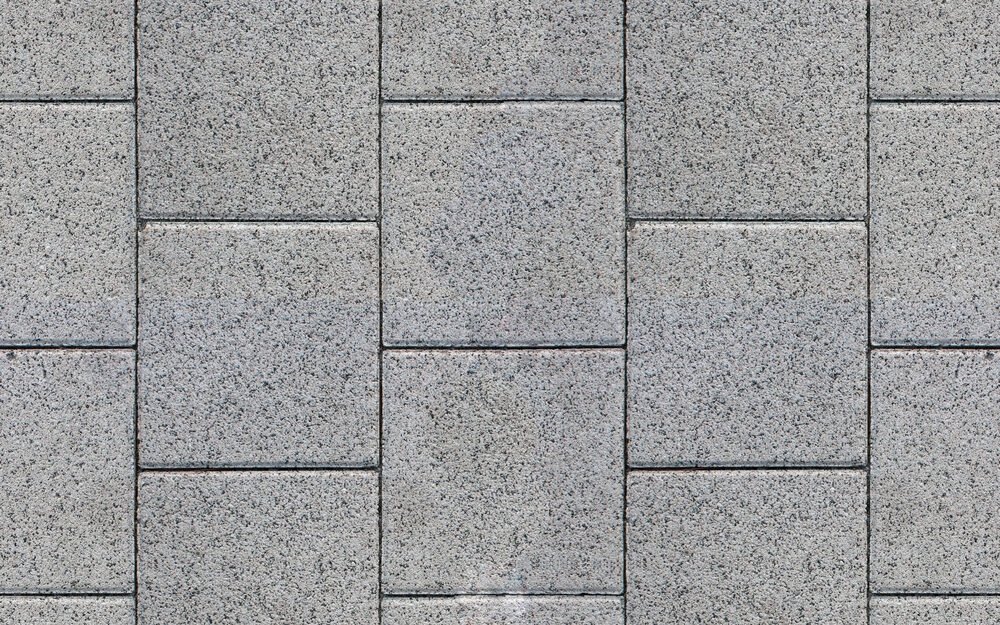
Encaustic cement tiles are made by pouring pigment into cement to create graphic decorative patterns and designs. The colour remains throughout the tile, which has a matte finish.
| Pros | Cons |
|---|---|
|
|
14. Granite tiles
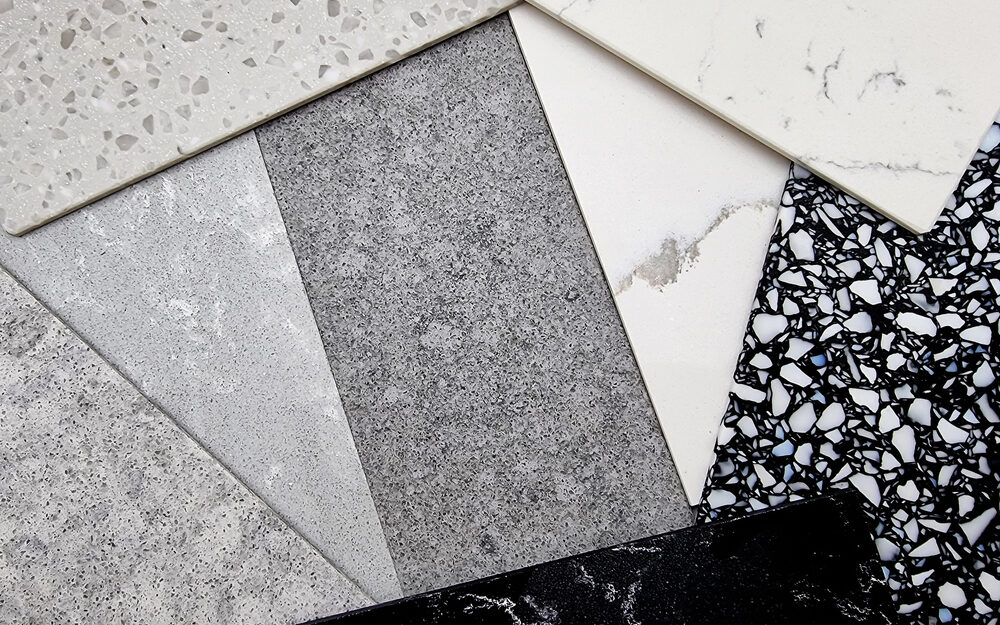
Granite tiles are cut from natural granite slabs. They have a hard, sparkly speckled pattern and are available polished or honed. Granite tiles are resilient to heat and scratching.
| Pros | Cons |
|---|---|
|
|
15. Metal tiles
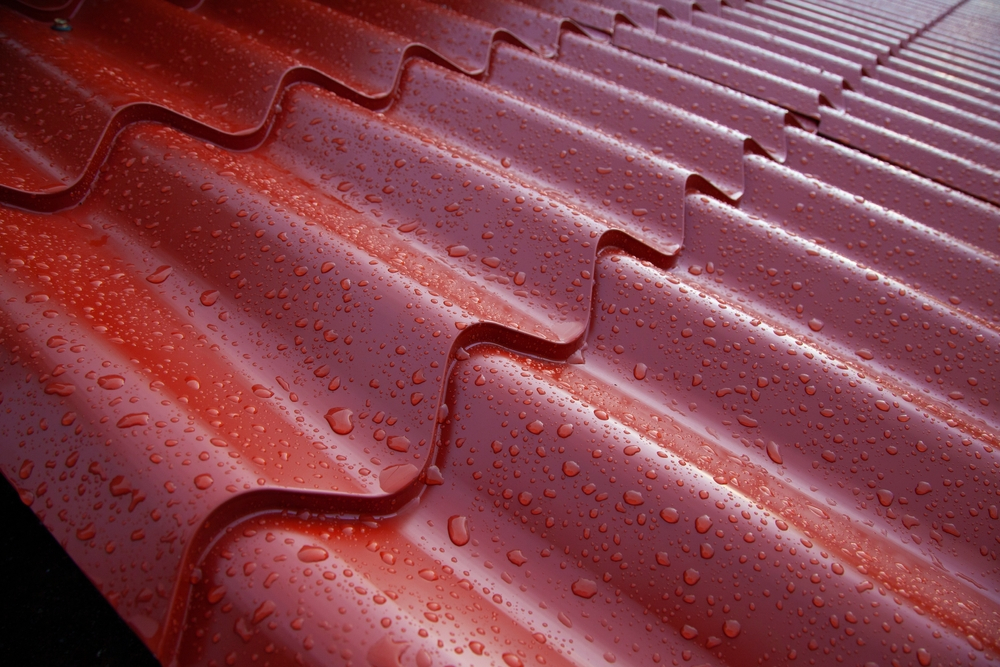
Metal tiles are made from recycled metals like stainless steel, copper or bronze. They mimic the look of metal panels or penny rounds. Metal tiles range from matte to mirrored shine finishes.
| Pros | Cons |
|---|---|
|
|
16. Resin tiles
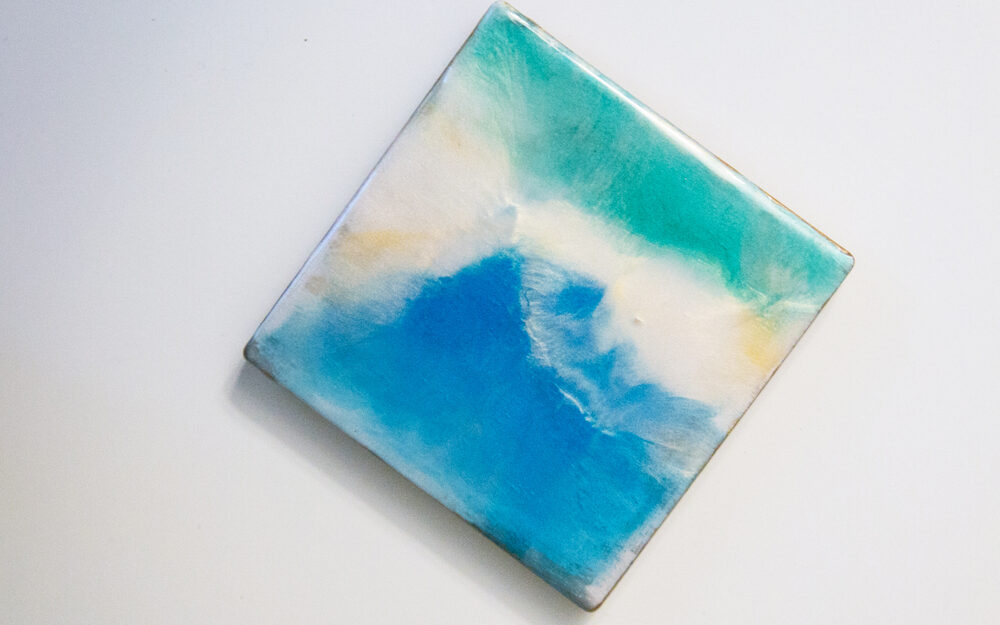
Resin tiles blend stone particles and tinted resin to imitate pricier materials like natural stone, wood or cement. Resin tiles are customisable in shape, size and finish. They mimic the appearance of other materials.
| Pros | Cons |
|---|---|
|
|
Purchase your bathroom tiles at East India Company!
Are you looking to revamp your bathroom with stylish new tiles? Look no further than East India Company, Chennai’s premier sanitaryware store.
With over 20 years in the industry, we offer the city’s largest selection of bathroom tiles. Browse high-quality ceramic, vitrified or stone elevated tiles from top brands. Our expert team can help guide you to the perfect tiles for your budget and style. We also offer installation services for your convenience.
From commodes to faucets, we have everything you require. Visit our showroom today or inquire online about inspiring tile displays and personalised service.
Conclusion
With so many types of bathroom tiles now available, you can customise your space to match your unique personality and lifestyle needs.
Consider each material’s pros, cons and best uses before deciding what works for your bathroom, aesthetics and budget. And don’t refrain from mixing different tiles for a showstopping effect. Look into slip-resistance needs for floor spaces that get wet.
The right tile choice can make all the difference in creating your dream bathroom you’ll enjoy using for decades to come. Take your time and explore all the options before settling on the perfect one!
FAQs
1). Which type of tile is best for a bathroom?
Porcelain tiles are often the best choice for bathrooms. They are water-resistant and durable, standing up to the daily wear and tear from showers and baths. Porcelain tiles also come in various styles, from sleek and modern to traditional looks, allowing homeowners to find a design that matches their bathroom’s aesthetic.
2). Which size of tiles is best for a bathroom?
For most bathrooms, 12×12 inch or 12×24 inch tiles are the best size. Larger tiles are easier to keep clean and make the bathroom appear more spacious. However, too large tiles can sometimes look out of place and be challenging to work with for intricate cuts around fixtures and corners.
3). How do I choose tiles for a small bathroom?
Opt for lighter, brighter tile colours to make the space more open and airy. Consider large-format tiles to minimise grout lines and maximise the sense of space. Look for multi-purpose tile that can be used on both the floor and walls for a cohesive look. Choosing clean, simple tiles will also help keep the focus on opening up the space instead of cluttering it.
4). Which is the best non-slip tiles?
Ceramic tiles are often considered one of the best non-slip flooring options as they are very durable and provide a safe, slip-resistant surface. Porcelain tiles also offer great slip resistance due to their low water absorption quality, preventing slippery conditions.
5). Are big tiles better in small bathrooms?
While larger tiles can make a small space feel more open, they also mean fewer tiles are needed, which can help keep costs down. However, big tiles can be more difficult to work with and cut around fixtures. 12-16 inches may be a better choice for a small bathroom as they provide clean lines without overwhelming the space.

